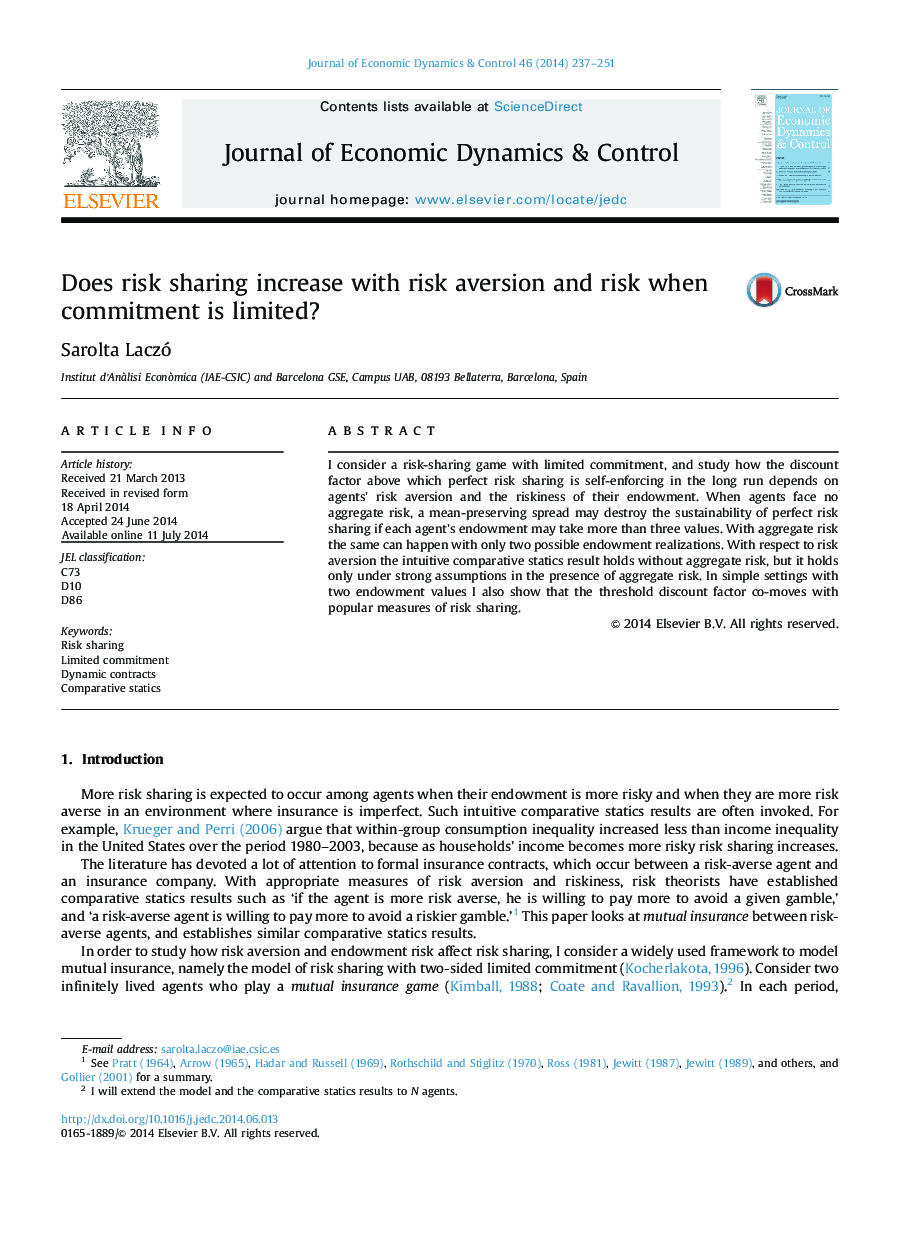| Article ID | Journal | Published Year | Pages | File Type |
|---|---|---|---|---|
| 5098459 | Journal of Economic Dynamics and Control | 2014 | 15 Pages |
Abstract
I consider a risk-sharing game with limited commitment, and study how the discount factor above which perfect risk sharing is self-enforcing in the long run depends on agents׳ risk aversion and the riskiness of their endowment. When agents face no aggregate risk, a mean-preserving spread may destroy the sustainability of perfect risk sharing if each agent׳s endowment may take more than three values. With aggregate risk the same can happen with only two possible endowment realizations. With respect to risk aversion the intuitive comparative statics result holds without aggregate risk, but it holds only under strong assumptions in the presence of aggregate risk. In simple settings with two endowment values I also show that the threshold discount factor co-moves with popular measures of risk sharing.
Related Topics
Physical Sciences and Engineering
Mathematics
Control and Optimization
Authors
Sarolta Laczó,
